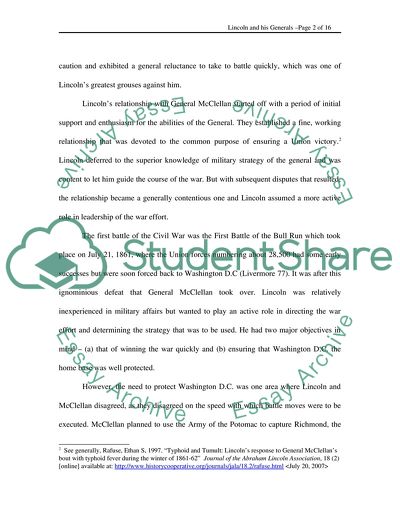Cite this document
(Lincoln and His Generals Coursework Example | Topics and Well Written Essays - 3750 words, n.d.)
Lincoln and His Generals Coursework Example | Topics and Well Written Essays - 3750 words. Retrieved from https://studentshare.org/history/1708501-the-relationship-of-lincoln-as-commander-in-chief-to-his-union-generals-with-emphasis-on-grant-mcclellan-and-others-during-the-civil-war
Lincoln and His Generals Coursework Example | Topics and Well Written Essays - 3750 words. Retrieved from https://studentshare.org/history/1708501-the-relationship-of-lincoln-as-commander-in-chief-to-his-union-generals-with-emphasis-on-grant-mcclellan-and-others-during-the-civil-war
(Lincoln and His Generals Coursework Example | Topics and Well Written Essays - 3750 Words)
Lincoln and His Generals Coursework Example | Topics and Well Written Essays - 3750 Words. https://studentshare.org/history/1708501-the-relationship-of-lincoln-as-commander-in-chief-to-his-union-generals-with-emphasis-on-grant-mcclellan-and-others-during-the-civil-war.
Lincoln and His Generals Coursework Example | Topics and Well Written Essays - 3750 Words. https://studentshare.org/history/1708501-the-relationship-of-lincoln-as-commander-in-chief-to-his-union-generals-with-emphasis-on-grant-mcclellan-and-others-during-the-civil-war.
“Lincoln and His Generals Coursework Example | Topics and Well Written Essays - 3750 Words”, n.d. https://studentshare.org/history/1708501-the-relationship-of-lincoln-as-commander-in-chief-to-his-union-generals-with-emphasis-on-grant-mcclellan-and-others-during-the-civil-war.


